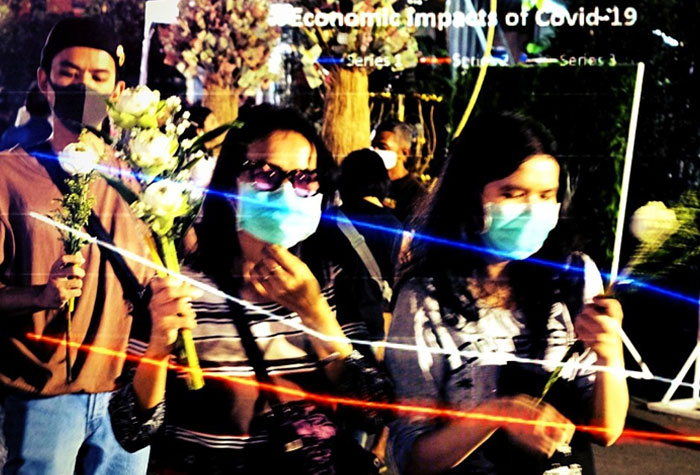The economic impacts of the Covid-19 virus are still being assessed, but the general view is that the hotel, restaurant and travel sectors will be impacted the most, but manufacturing will not escape the fall-out due to interruptions to global supply chains.
Cathay Pacific asked 27,000 staff to take unpaid leave, then issued a profits warning, Asiana Airlines followed with similar announcements. Both Jaguar Cars and Apple have said their production is now being impacted due to a shortage of components from China. Speaking to friends in the hotel sector I’ve heard of occupancy rates falling to below 25% and in the restaurant sectors we have temporary closures, and I’m sure people will be thinking twice before booking a cruise.
But is this level of economic impact justified?
My personal view, based on 40 years working in public health, retail operations and risk management is a resounding ‘no’.
The comparatively high fatality rate from both SARS and MERS, combined with the lower rate of transmission, meant that strict controls were both justified and effective. However, when looking into the emerging details about Covid-19 it’s becoming clear that it’s a less serious illness than SARS or MERS, and just as relevant, it is more infectious making controls less effective.
The first confirmed case, as reported in The Lancet, was on 1 December – so it must have been circulating in the community during November. The controls at airports and restrictions on travel were not in place until January, plus we now know that some cases have mild or no symptoms, making effective screening almost impossible.
So why the dramatic control measures? Firstly, the Governments and the WHO have a duty to be cautious, and they applied the lessons from the SARS outbreak of 2002 – but as we now know, Covid-19 is not SARS. Another issue is that Covid-19 was the first new epidemic to emerge in an age when social media has become the dominant force in society – so we’re all suffering from an information pandemic.
Everybody with access to the internet, which in Asia is everybody, has become a Google-Epidemiologist. We get daily updates and interactive real-time mapping of new cases and deaths, everybody knows the latest score for their country – it’s like a virus World Cup, but are most people equipped to interpret the data? If we also reported cases of influenza alongside the Covid-19 statistics we’d see that it’s not so different to the seasonal flu outbreaks we get every winter.
Several factors conspired to distort our perception of the outbreak:
1. Anything ‘new’ attracts media attention
2. We underestimate the sheer size of Chinese cities – Wuhan has a population of almost 10 million, which is almost twice that of Singapore, and with 7% of the population being elderly, plus a higher than average number of smokers, plus a high male to female ratio, we have nearly a million people who are susceptible to viral pneumonia.
3. Limited testing capability combined with the potential for high numbers of infected people having minor or even no symptoms, means we under-estimate how many people are infected. But we have a much better idea of how many people die of the infection – so this inflates the fatality rate.
4. People have a natural fear of a ‘new’ disease – so everyone in China with a cold or flu ran to the nearest hospital – this overloaded the medical services creating dramatic images on social media to fuel the firestorm.
If we take a cold look at some gems of information amongst the pandemic of data, we can see that the fatality rate amongst healthcare workers in Hubei Province is around 0.2% – this data should avoid the under-reporting of cases that is distorting the general statistics.
So with the benefit of 20:20 hindsight we can see that Covid-19 is much more like a seasonal flu outbreak than either SARS or MERS – but after isolating major cities, cancelling flights, closing schools and banning overseas visitors – it’s difficult to move back from Defcon-1 and restart a stalled economy.
As business-people we need to be diligent and look after our customers and staff, but we also need to run a viable business in order to protect jobs. I believe we can do this by continuing with the additional hygiene measures in our operations, whilst also running our businesses as normally as possible. This means not cancelling meetings or events and demonstrating a calm understanding of the true level of risk. To quote Franklin D Roosevelt; the only thing we have to fear is…fear itself.

